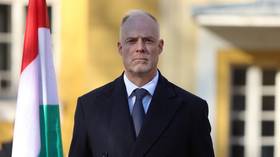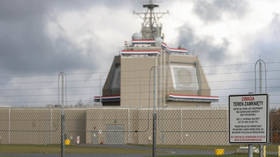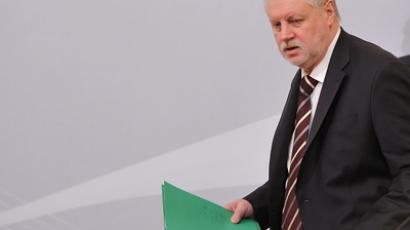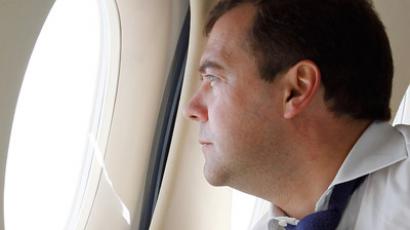China opens doors of secret military base to journalists
China’s military gave a rare display of its military prowess to journalists on Monday to help dispel fear about the country’s intentions and provide a sense of openness over Chinese strategy the day before Japan’s vice FM visits to negotiate territory.
China displayed a range of its weaponry, including anti-aircraft
cannons dating back to the 1960s. Similar, modern counterparts
were also showcased, as soldiers chatted to journalists about why
they joined the military.
Military commander Chen Xifeng, who is in charge of the base in
central-eastern Lintong, was tasked with speaking to
representatives of the press. “The Chinese people and the
People's Liberation Army are peace loving,” he told a Reuters
reporter while shaking hands and smiling.
The base is of key importance as it is part of one of seven
territories which encompasses the far western region of Xinjiang,
which borders Pakistan and central Asia. It is the first base
outside of Beijing to be opened up to journalists.
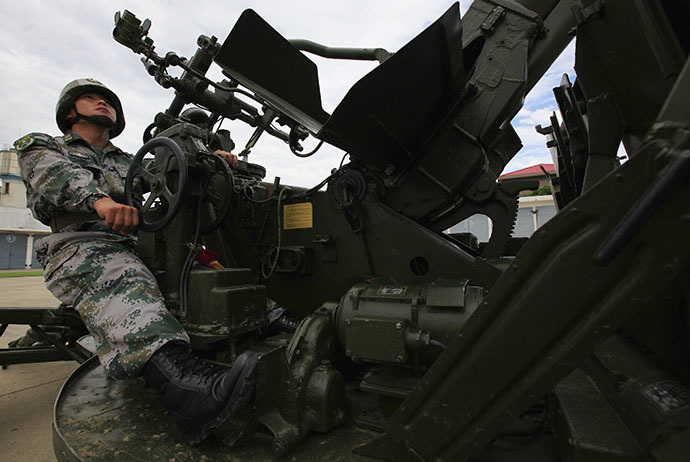
The commander described other weaponry which wasn’t available for
viewing, including a detachment of HQ-7B short-range
anti-aircraft missiles.
Government funds being channeled into the People's Liberation
Army will rise 10.7 per cent to 740.6 billion yuan ($120 billion)
this year. However, analysts say this figure is not reflective of
the government’s true expenditure.
While using the opportunity to inform reporters of the extent of
China’s military capabilities and to declare a commitment to
increased transparency, the commander also confirmed the
existence of tensions with other Asian countries. “China does
have territorial disputes with some neighbors but the government
and military are quite restrained in dealing with them,” he
said.
On Tuesday, Japan’s vice foreign minister, Akitaka Saiki, is to arrive on Chinese shores. He hopes to resolve ongoing territorial disputes surrounding an island chain in the East China Sea, as well as put an end to a scuffle surrounding two archipelagos in the South China Sea.
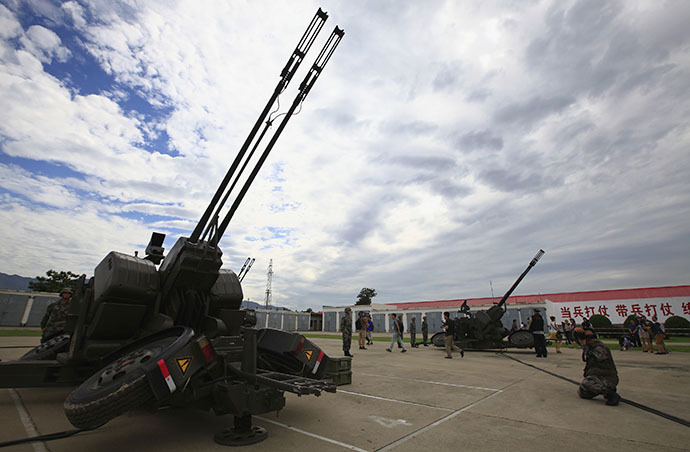
Japan’s newly re-elected Prime Minister Shinzo Abe called for the
meeting between the two countries’ leaders last Friday. China has
unsettled both Asia and the US with its concerted efforts for
territorial claims in the region to be internationally
recognized.
China was reluctant to discuss the territorial issues on specific
terms. “We can talk about all these things back in
Beijing,” the Chinese military's official spokesman, Geng
Yansheng, told reporters, when asked about tensions with Japan
over a group of disputed islands in the East China Sea.
“This visit shows how open we are...but this openness is a
gradual process,” Geng said. “We will continue to do this
and open up more bases for visits.”
The precise timings are unconfirmed. “There is no immediate
schedule for a leadership summit,” Japan’s Chief Cabinet
Secretary Yoshihide Suga told a news conference on Monday.
China’s Foreign Ministry said in a Friday statement to Reuters
that it was in Japan’s interests to “stop using empty slogans
about so-called dialogue to gloss over disagreements.” China
would like Japan to acknowledge the existence of a formal
territorial disagreement, which Tokyo has rejected on the grounds
that recognizing China’s claim would undermine its own.








